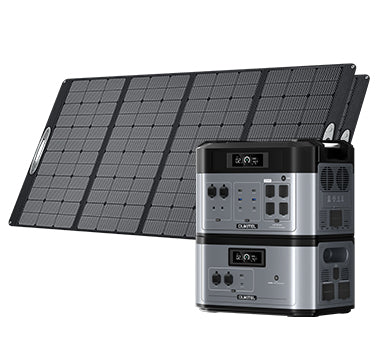Indoor Generator for Home Backup: What You Need to Know
Navigation
- Introduction
- Why Are Indoor Generators Essential to Your Home?
- Indoor Generators Types
- How to Select the Right Indoor Generator for Home?
- Conclusion

Introduction
When discussing power solutions for homes, an indoor generator often becomes a significant talking point. This piece of equipment is vital in emergency situations, such as during a power outage. It can power vital appliances in your home, ensuring your comfort, safety, and convenience are not compromised. But what do you really need to know about indoor generators? This blog will explore the essentials and provide you with insights to make an informed decision.
Why Are Indoor Generators Essential to Your Home?
Power outages can occur at any time, and when they do, indoor generators step in as an essential power source. Here are some situations where indoor generators prove invaluable:
- During Weather Events: Be it a snowstorm, hurricane, or heatwave, severe weather can cause widespread power outages. Indoor generators ensure that your heating or cooling systems remain operational, maintaining a comfortable indoor temperature.
- In Case of Grid Failures: Unexpected grid failures can plunge your home into darkness. Indoor generators can power your lighting system, allowing normal function even during an outage.
- During Utility Company Maintenance: Scheduled maintenance work by the utility company can cause temporary power loss. An indoor generator can keep your essential appliances running, ensuring minimal disruption to your daily routine.
Indoor Generators Types
Primarily, indoor generators fall into two categories:
-
Generator For Apartment
- Gas-powered Indoor Generators
For longer power outages, gas-powered indoor generators come into play. These generators have a higher power capacity compared to battery-powered generators. They operate on propane or natural gas and can provide power over extended periods. However, they require proper ventilation due to their emissions, and despite being designed for indoor use, they should ideally be placed near a window or vent.
How to Select the Right Indoor Generator for Home?
Choosing between a battery-powered generator and a gas-powered generator might seem challenging, but when you delve into your specific needs, the choice becomes clear. Here's a detailed look at the key factors to consider:
- Power Needs: Start by assessing your power requirements. Make a comprehensive list of all the appliances you'd want to run during a power outage. These could range from essential devices like refrigerators and heating/cooling systems to comfort devices such as TVs, computers, and even game consoles. Note the running wattage and the starting wattage (the initial power surge on startup) for each device. The generator you select must be capable of handling the total wattage. If you only need to power a few small devices, a battery-powered generator would suffice. However, a gas-powered generator would be a better choice if you need to run large appliances or multiple devices simultaneously due to its higher power output.
- Duration of Outages: Think about the duration and frequency of power outages in your area. A battery-powered generator could meet your needs if outages are short and infrequent. They can easily handle short bursts of usage to power your essential devices. On the other hand, a gas-powered generator, with its longer run time, would be a more reliable option if you live in an area with frequent and prolonged power outages. These generators can provide continuous power for several hours or even days, depending on the size of the fuel tank.
- Noise Tolerance: If you're in a small house or an apartment where noise could be disruptive, the quiet operation of a battery-powered generator will be a significant advantage. Gas-powered generators tend to be louder and may not be ideal for close quarters or noise-sensitive environments.
- Ventilation: Safety should always be a top priority when using generators. Battery-powered generators are emission-free and can safely operate in enclosed spaces. Gas-powered generators, however, emit exhaust gases and should be used in well-ventilated areas or near open windows. Ensure your indoor space can accommodate this requirement before choosing a gas-powered model.
- Maintenance: Lastly, think about the level of maintenance you're willing to undertake. Battery-powered generators shine in their simplicity, requiring minimal maintenance and offering a hassle-free 'set-and-forget' experience. In contrast, gas-powered generators demand a more hands-on approach. They necessitate regular maintenance check-ups, oil changes, and spark plug replacements. Should ease of maintenance be your top priority, the battery-powered generator stands as the clear winner.
Conclusion
Investing in an indoor generator serves as a beacon of assurance, providing you with a steadfast power backup solution during unexpected outages. As a prudent homeowner, comprehending your power requirements and discerning the diverse types of indoor generators on the market will significantly aid you in your decision-making process.
Remember that your home's most suitable indoor generator depends entirely on your unique needs and circumstances. An indoor generator represents more than just a piece of machinery; it's an investment in your home's resilience, ensuring the safety and continuity of your power supply.







































 Oukitel Flashlight
Oukitel Flashlight Oukitel Solar
Extension Cable
Oukitel Solar
Extension Cable

















Leave a comment